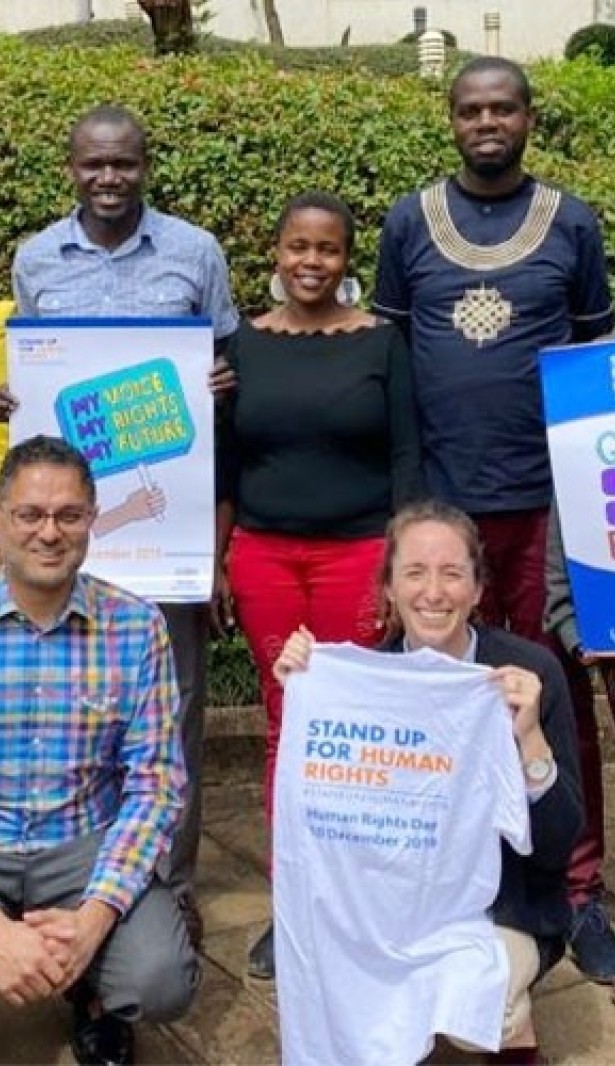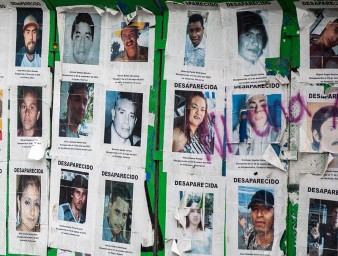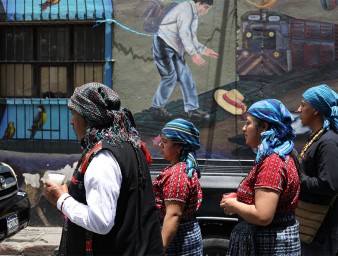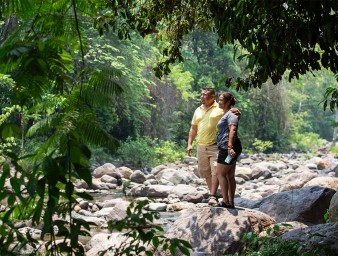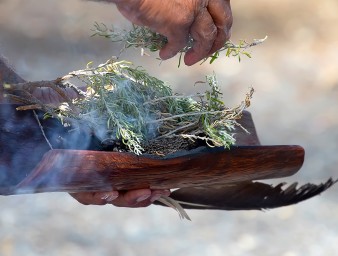Kenya’s social justice movement expands its reach
31 December 2019
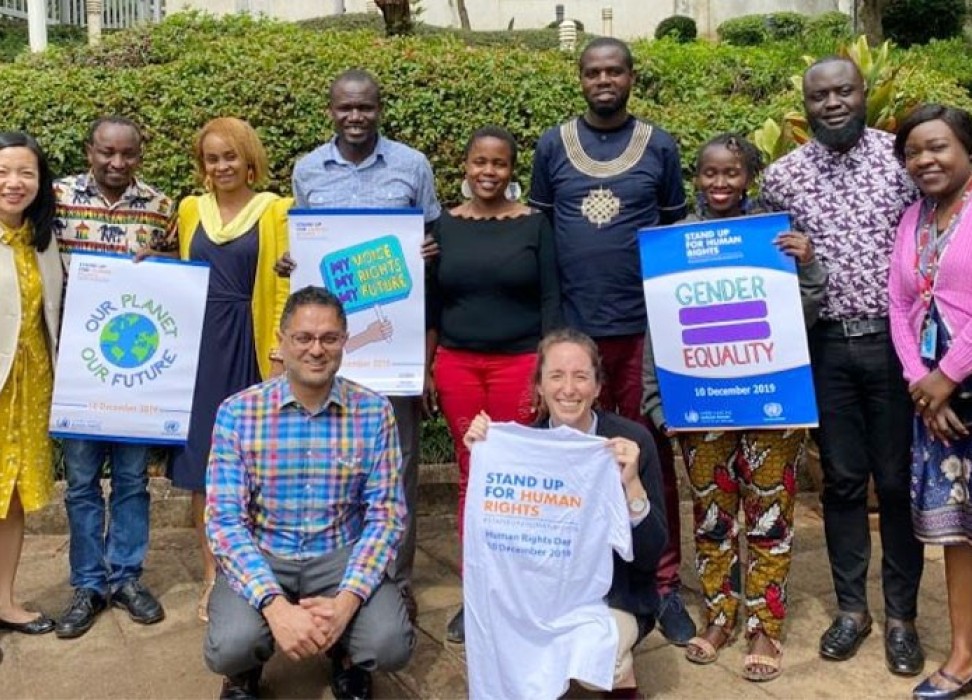
Since 2017, UN Human Rights in Kenya has partnered with community movements of young human rights defenders from informal settlements who promote social justice in their communities.
The foundation of these movements is to establish spaces, known as Social Justice Centres, where communities can come and organize, collaborate, discuss and reflect on the human rights violations they endure to document them and campaign for change.
Police violence and extrajudicial killings, sexual and gender-based violence, and economic and social rights - such as the rights to water and adequate housing – are all pressing rights issues voiced by communities in informal settlements.
Some 60 percent of the population of Nairobi, Kenya's capital, lives in informal settlements, yet these occupy just six percent of the land area of the city. Inhabitants face deep inequalities in access to water, sanitation, health and education and other basic services.
The first Social Justice Centre was established in 2015 in Mathare, one of Nairobi's century-old slums inhabited by around half a million people huddled into one square kilometre, where water is scarce but police violence rampant. In 2011, the UN Special Rapporteur on extrajudicial, summary or arbitrary execution had found that, despite a new, progressive Constitution and police reforms, police killings due of excessive use of force continue to be reported.
In the past four years, 26 communities have followed in Mathare's footsteps. More Social Justice Centres were established in Nairobi, Mombasa and Kisumu – Kenya's three largest cities - and the counties of Vihiga and Kakamega. These centres are networked through the Social Justice Centres Working Group, which functions as the collective voice for the social justice movement and is comprised of two representatives from each centre.
Being grassroots organisations, the work of the Social Justice Centres did not have much visibility beyond their communities, and they were not included in dialogue with civil society on governance and human rights issues that targeted the major NGOs. Prior to their engagement with UN Human Rights, the Social Justice Centres Working Group had never interacted with the United Nations in Kenya, nor with donors and the diplomatic community.
Since 2017, UN Human Rights has worked with the Social Justice Centres Working Group and supported their engagement with human rights mechanisms and fora, to raise the profile of their work and the human rights issues affecting the urban poor in informal settlements.
In 2019, the Social Justice Centres Working Group made a submission to the Human Rights Council's upcoming Universal Periodic Review of Kenya, in their first engagement with international human rights mechanisms. The same year, their community activism was recognised by the human rights community in Kenya when the Social Justice Centres Working Group and Wilfred Olal, their national coordinator, were jointly awarded the Human Rights Defender of the Year award.
"UN Human Rights has opened for us doors and spaces that we never thought we could ever occupy. Because of UN Human Rights, we are now recognised by other players and we now even sit in the donor working group on human rights defenders. I and the social justice centres jointly won the Human Rights Defender of the Year award because of these open spaces," Olal said.
"Assistant-Secretary-General Andrew Gilmour visited one of our social justice centres and this was a huge achievement, as no high-level UN official had ever visited our communities apart from UN Human Rights in Kenya," he added. "With the support of UN Human Rights, the Social Justice Centres Working Group engaged with the UPR process for the first time, which for us is a very big achievement that has contributed to capacity building of our members. Without UN Human Rights, I don't know where we would be today."
With this increased recognition and support, and the tireless voluntarism and activism of their members, the grassroots social justice movement is flourishing and new centres are opening across the country. UN Human Rights in Kenya continues to support their work on a range of human rights issues, and to connect them to opportunities to amplify their work and the voices of the communities they serve.
31 December 2019
